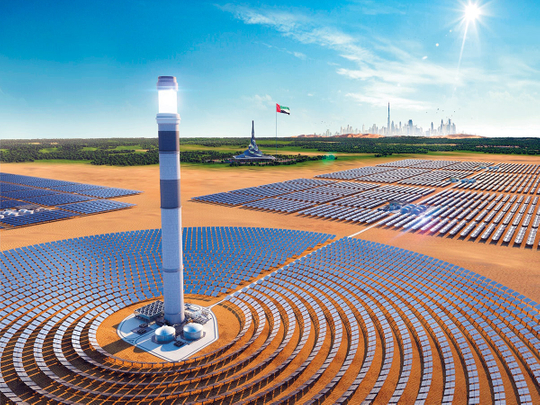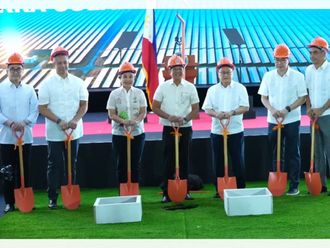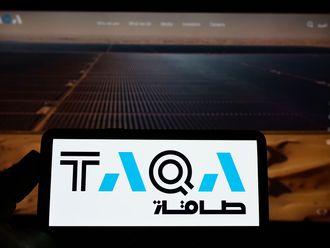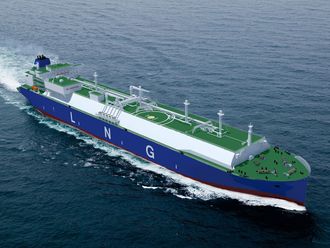
Dubai: ‘Clean energy’ production capacity in Dubai has hit the 14 per cent mark of the emirate’s overall installed power capacity, according to DEWA. The confirmation comes as new milestones are reached by the Mohammed bin Rashid Al Maktoum Solar Park, which DEWA is implementing across multiple phases.
This is the largest single-site solar park in the world using an Independent Power Producer (IPP) model. The fourth phase of the solar park is 92 per cent complete.
As of now, the clean energy capacity in the emirate is 2,027MW, using photovoltaic solar power (PV) and concentrated solar power (CSP). Dubai’s total power production capacity is at 14,517MW.
“We achieve this by diversifying energy sources and increasing the share of renewable and clean energy in Dubai’s energy mix,” said Saeed Mohammed Al Tayer, Managing Director and CEO of DEWA. “This achieves the Dubai Clean Energy Strategy 2050 and Dubai Net Zero Carbon Emissions Strategy 2050 to provide 100 per cent of Dubai’s total power production capacity from clean energy sources by 2050.”
For its part, the Mohammed bin Rashid Al Maktoum Solar Park will have a production capacity of 5,000MW by 2030. The fourth phase of the park sees 417MW connected to the DEWA grid.
DEWA owns 51 per cent of the company while ACWA Power holds 25 per cent, and the Silk Road Fund owns 24 per cent.
“Since its launch, the Mohammed bin Rashid Al Maktoum Solar Park has received considerable interest from global developers,” the CEO said. And ‘which reflects the confidence of investors from around the world in DEWA’s major projects in collaboration with the private sector using the IPP model.”
Through IPP, DEWA has attracted around Dh40 billion of investments and received the ‘lowest global solar energy prices (levelized costs) five consecutive times’, added Al Tayer. This makes ‘Dubai a global benchmark for solar energy prices’.
This phase uses three hybrid technologies: 600MW from a parabolic basin complex (three units of 200MW each), 100MW from the world’s tallest solar power tower at 262.44 metres, and 250MW from photovoltaic solar panels.
On completion, it will have the largest thermal storage capacity in the world of 15 hours, ‘allowing for energy availability round-the-clock’, according to DEWA.
The 4th phase will provide clean energy for around 320,000 residences and reduce 1.6 million tonnes of carbon emissions annually.












